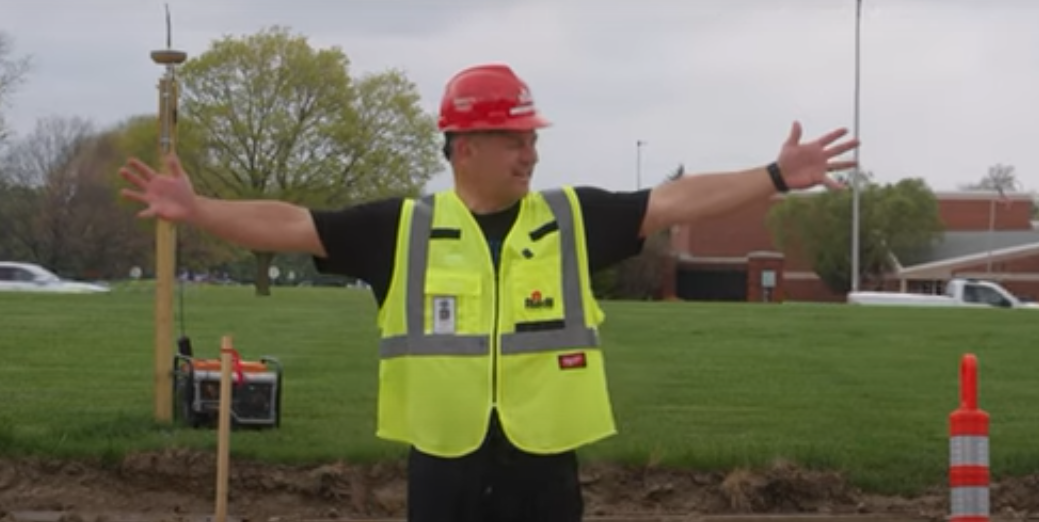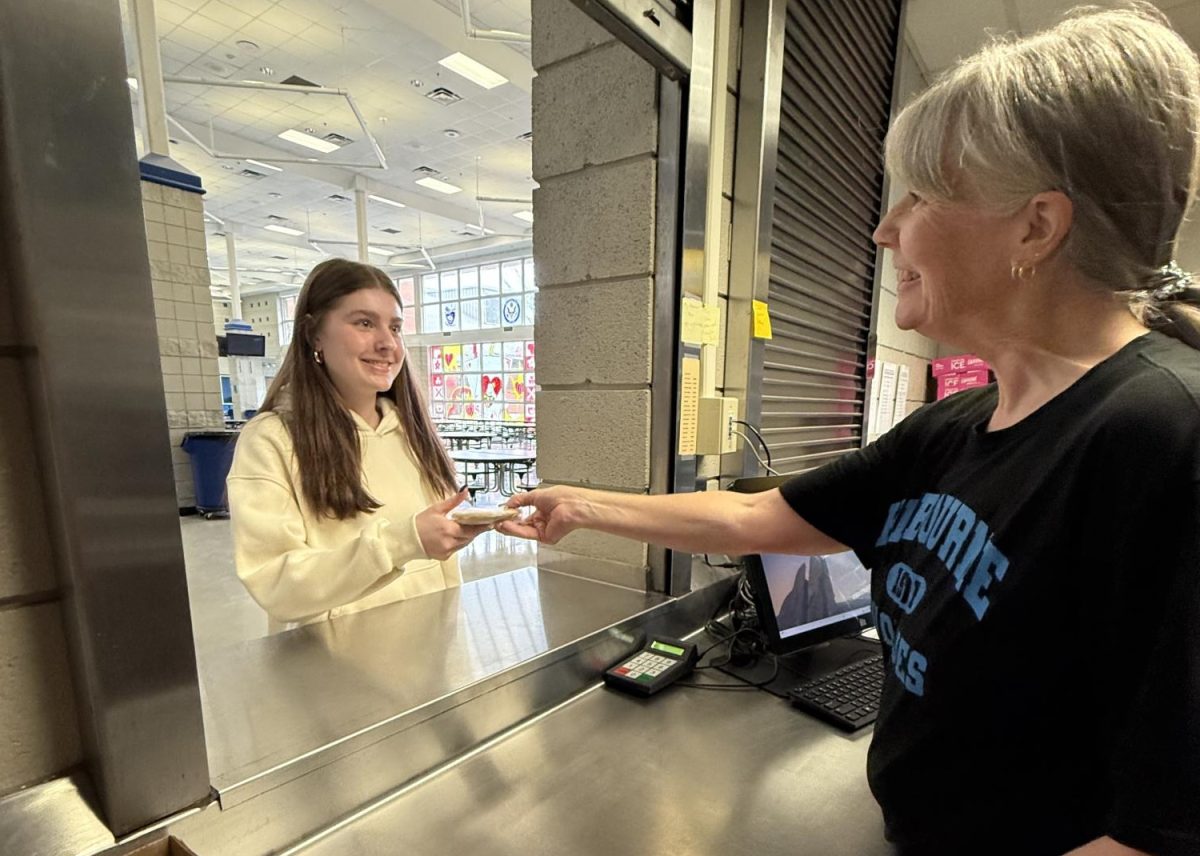Starting this fall, students at Kilbourne, and all around Ohio and various other states, are facing stricter rules when it comes to phone use, student information and parent’s rights throughout the school day. The new guidelines are an attempt to limit distractions in school and also ease growing concerns about data privacy and digital safety in schools. At Kilbourne, these changes mean a ban on cellphone access during the school day and new policies surrounding what information about students is mandatory to share with parents and new regulations on digital applications to be used at school.

The Cellphone Ban
The new phone ban, signed by Governor Mike DeWine in June, aims to reduce distractions and improve classroom focus. The direct wording Kilbourne has adopted to enforce the policy is, in the words of Mr. Thomas, “A cellphone ban to limit distractions, meaning zero access during the school day which we’ve labeled as 8-3:30.” This means not only no phones in regular academic classes, but also in media classes, photography classes, and during lunch periods and academic prep periods, creating lots of buzz around how classes will adapt to not utilizing tools on phones.
While it’s undeniable that phones have become a distraction in classrooms across the world, cutting down on students’ attention and focus in the classroom, a full ban has been hard for many students to comprehend, and has left both students and teachers with questions pertaining to the details and enforcement of the bill.
Mr. Thomas has been the principal of Worthington Kilbourne High School for nine years, and he offered his insight into the rules, intentions and specifics on enforcement when it comes to this cellphone policy. Many students were upset about the totality of a sudden ban rather then a few stricter rules put into place.
Mr. Thomas commented on this, sharing that, “Phones are a newer issue. Adults are addicted too so kids are the ones who are gonna figure it out in the future because the adults are navigating it too. Kids are gonna come up with better measures but the only solution right now is a ban.”
He acknowledges and understands the frustration but he also emphasizes that the policy is a starting point, not a permanent solution. Its evolution will come through students and parents voicing their concerns and suggestions over time. For now, students and teachers must focus on learning creating tech-based learning that doesn’t rely on personal devices.
There was also some confusion about the enforcement and discipline when it comes to the bill. Mr. Peterson, who has been at Kilbourne for six years, shared some insight into these aspects of the bill. He shared that the bill is about what teachers see and don’t allow. If a student is directly asked to get their phone out, there wouldn’t be a consequence for that student. The discipline for the policy is progressive, starting with warnings and calls home, and if the offense continues, suspension may be discussed.
An important thing to remember is that your teachers are required legally to enforce these rules in order to keep their teaching license and stay in line with district and state policy and law, so taking out frustration about these policies on them is not only unfair but also unproductive.
It’s also important to look at these situations with a neutral view. The administrative staff and Kilbourne staff as a whole has remarked on an increase in student interaction since the bill was created. Mr. Thomas shared, “I already know that it’s working, people talking is a good thing.”
While this new policy will be undeniably hard to adjust too, the best way to approach the situation is to follow what your teachers ask of you and to try and create new ways to pass the time you would normally spend on your phone.

House Bill 8
House Bill 8, or the “Parents Bill of Rights has also amassed a great amount of controversy in schools across Ohio. There are many facets of the bill, but put into simpler words by Mr. Peterson, the bill encompasses, “The Parent’s Right to Know.”
The three main applications students can expect to see of this in the classroom is how your teachers may refer to you, what they may show you, and what they have to report to your parents.
Teachers are now only allowed to refer to students based on the name entered for them in Infinite Campus. This goes for both nicknames or name shortening and name changes associated with gender or identity. Teachers can only call students by names that are formally entered and approved in Infinite Campus. If a student requests to be called by a different name, the teachers are required by law to report that home regardless of the circumstances around the name change and how the people at home may react.
Teachers also are now required to report changes in behavior or academic performance to parents as well. If a teacher notices drastic or concerning physical or mental changes in students or if they notice dropping grades, they are now required by the state law to begin a report process that can eventually reach the parents. Additionally, parents must be notified about students dropping multiple higher level courses or of other major changes in their child’s educational path.
Mr. Peterson shared what he believes the motive behind the bill is, stating, “Parents are trusting schools with their kids so the schools have to let the parents know what’s going on.”

This is an obvious facet of the bill, but the fact that for some kids sharing this information would be dangerous is not overlooked. The bill is new, and Mr. Peterson shared his belief that “case precedent”, which is the process of defining the details of bills or laws through dealing with cases that raise issues with them, will iron out the details of this bill and help shape the policies to keep all kids safe.
The new policies at Kilbourne represent a change in how schools are now going to be expected to operate. This change can be and most likely will be difficult, it’s important to understand your teachers’ role in these policies. They don’t create the policies, they’re following laws and guidelines handed down from the state and the district and trying their best to figure out this change just like their students.
As Mrs. Travis put it, “It’s not about how the teachers feel, it’s about the law.”
There is truly no use in taking frustration out on teachers. Instead of leading to change, it will inevitably just add to the frustration in the classroom environment as teachers try to adapt to their new expectations.
If you believe these policies need to change, the most powerful tool you have is your voice. Talk to your parents. Ask questions. Encourage conversations about what’s happening in schools. School boards and lawmakers are influenced by the people who vote for them, aka the adults around you.
Real change won’t happen through closeted complaints or punishing teachers, it will happen when students and families speak up, stay informed, and participate in the systems that shape our schools.
































